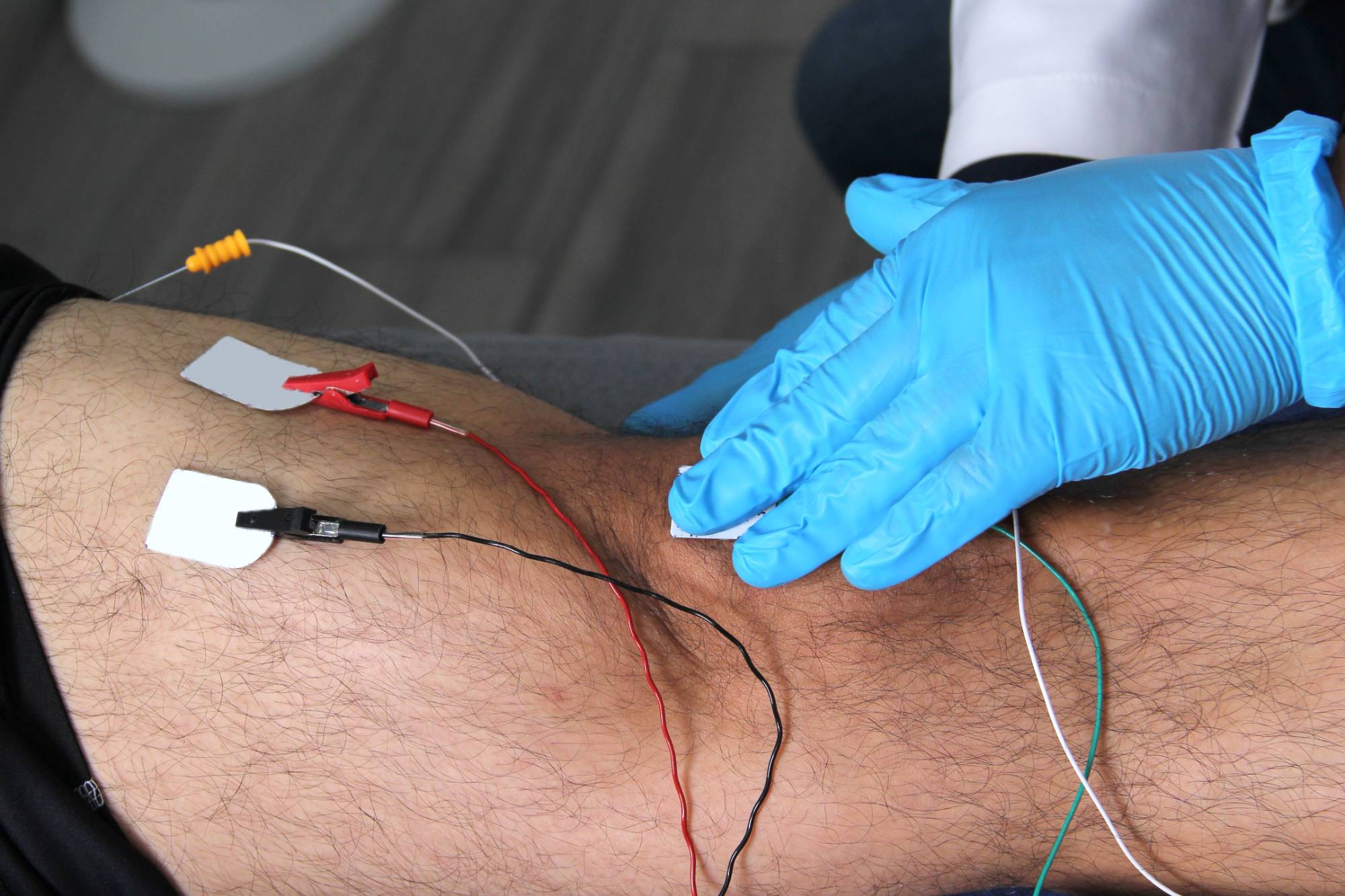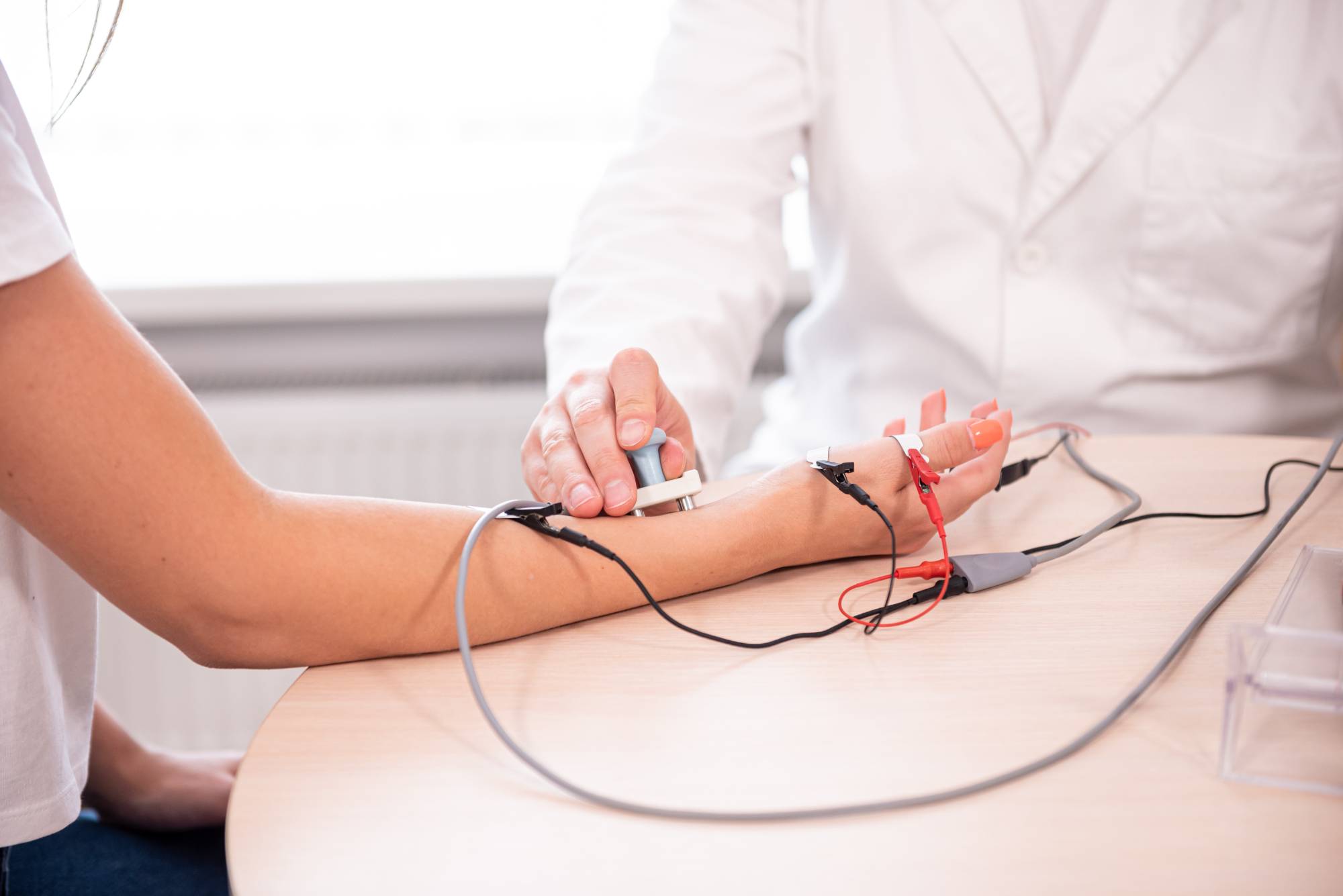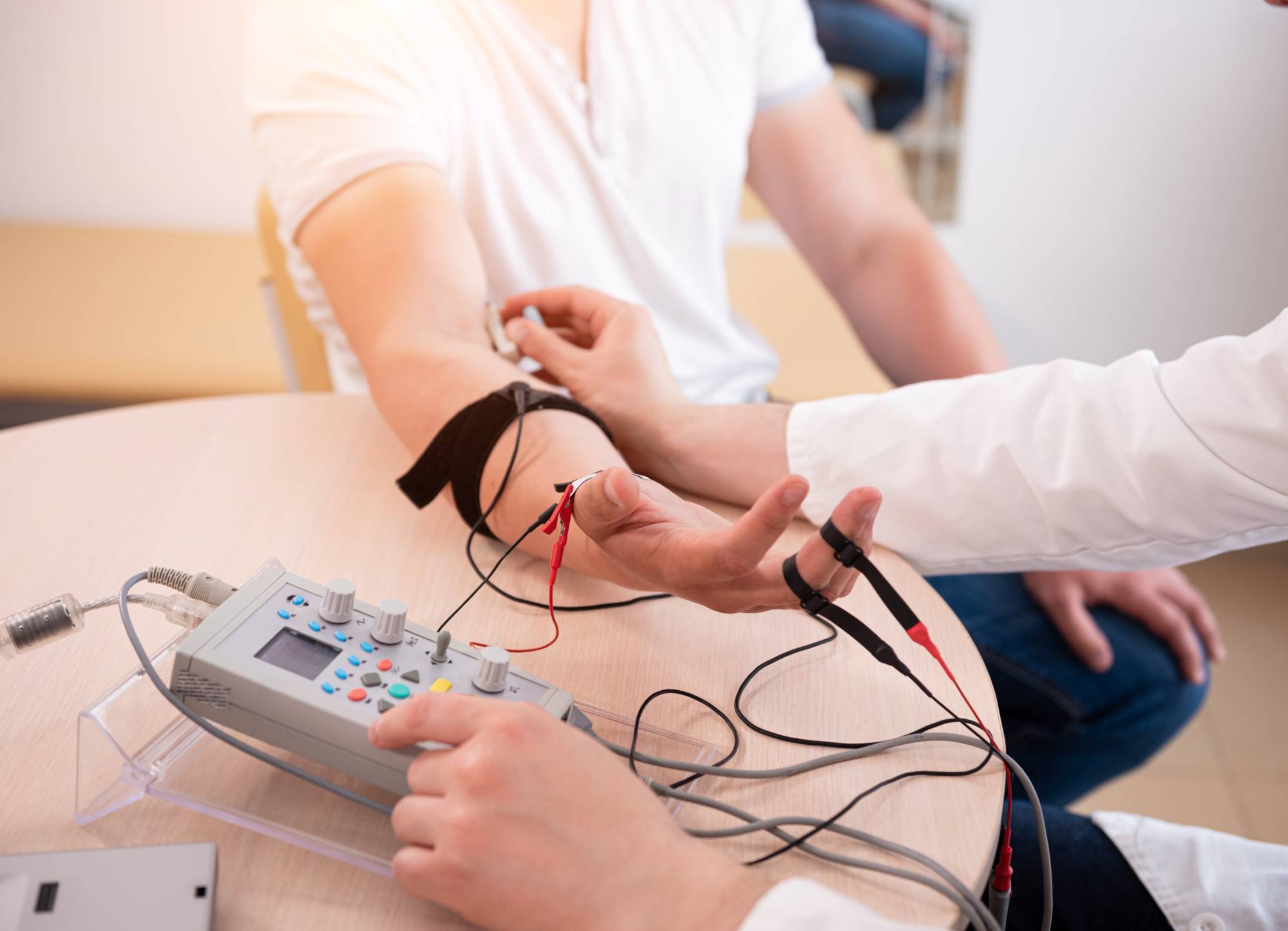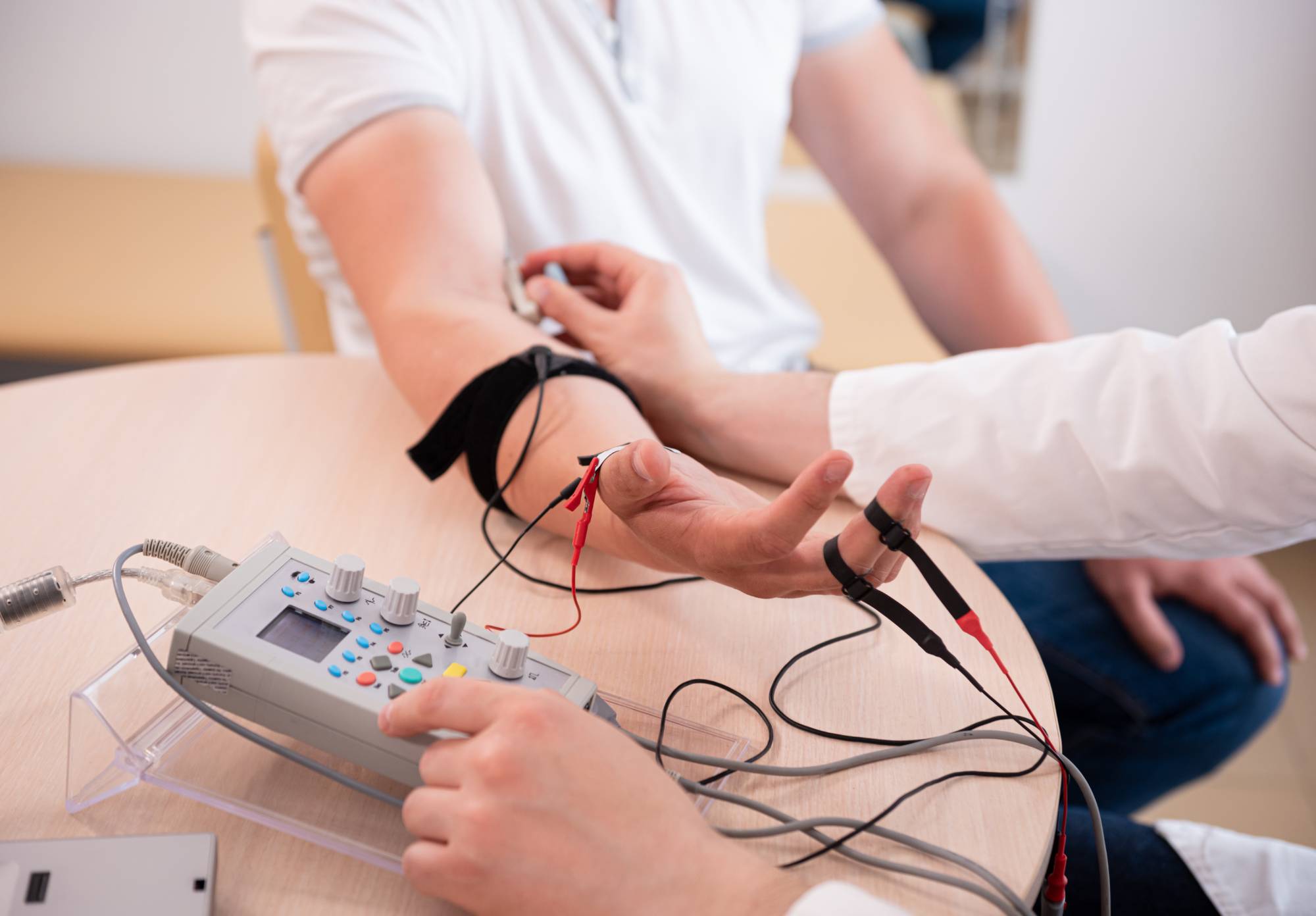Precise electromyography testing that identifies exactly what’s causing your numbness, tingling, or muscle weakness.

Reviews

You’ve been dealing with symptoms long enough. That numbness in your hands, the tingling in your feet, or the unexplained muscle weakness that’s affecting your daily life deserves real answers.
EMG testing gives you those answers. This diagnostic procedure measures how well your nerves and muscles communicate, pinpointing exactly where problems exist. Instead of guessing about treatments or living with uncertainty, you get a clear picture of what’s happening in your body.
The results guide your treatment plan. Your doctor knows exactly which nerves or muscles need attention, which treatments will work, and which ones won’t waste your time. You move forward with confidence instead of trial and error.
We have been providing specialized diagnostic testing to Town Park residents for years. Our team consists of board-certified physicians trained in advanced electromyography and nerve conduction studies.
We use state-of-the-art EMG equipment and follow strict protocols to ensure accurate results. Every test is performed by our experienced specialists who understand the nuances of nerve and muscle function.
You’re not just getting a test – you’re getting expertise that comes from thousands of successful diagnostic procedures and our commitment to helping Town Park residents get the answers they need.

The EMG test happens in two parts. First, the nerve conduction study uses small electrical pulses to measure how fast signals travel through your nerves. You’ll feel brief, mild sensations – uncomfortable but not painful.
Next comes the electromyography portion. A thin needle electrode is inserted into specific muscles to measure electrical activity. The needle is much smaller than those used for blood draws, and most patients tolerate it well.
The entire process takes 30 to 60 minutes depending on which areas need testing. Results are available immediately, and you’ll receive a clear explanation of what the findings mean for your condition and treatment options.

Ready to get started?
Your EMG testing includes both electromyography and nerve conduction studies in one appointment. The comprehensive evaluation covers the specific areas where you’re experiencing symptoms – whether that’s your arms, legs, back, or neck.
You receive detailed results that identify nerve damage, muscle disorders, or conditions like carpal tunnel syndrome, sciatica, or diabetic neuropathy. The findings help distinguish between nerve problems and muscle problems, which require different treatments.
Town Park patients appreciate the convenience of getting complete diagnostic testing close to home. Most insurance plans cover EMG testing when medically necessary, and we handle prior authorizations and claims processing to minimize your hassle.

New York:
Florida:
Support